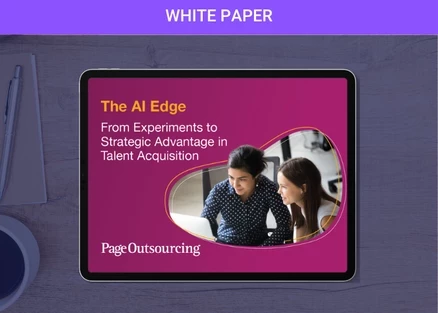Top Shared Services Talent Challenges – and Tips on How to Deal with Them
Add bookmark
SSON recently ran a global survey of the shared services industry and 750 of you responded to the 30+ questions! Thank you!
Topics included Global Business Services, Outsourcing and Captive trends, AI and robotics, as well as, towards the end of the survey, some interesting questions about managing talent in your Shared Services teams across the organisation.
In this column we will focus on those talent management topics and have invited Simon Brown to review your answers and add his view points as a Talent Management subject matter expert. Simon is a frequent columnist at SSON and a veteran of shared services deployments at GSK, Coca-Cola, NCR, Carlson Wagonlit Travel and Becton Dickinson over the past 20 years, both as a Shared Services Director and a Transformation and Change Advisor and Consultant.
Simon: Thank you Barbara for inviting me to review and comment on the Talent Management survey responses.
Scope and Context of survey responses
To set the scene: There was a rich diversity of viewpoints from organisations across the spectrum of shared services experience from those at the planning stage (17%), to those organisations with 10 plus years of shared services experience (24%), and with a large group of responses in the middle bands of 0-3 years (over a quarter of respondents), 4-6 years and 7-10 years of experience. What was also interesting to note was that answers came from all geographic regions, with Asia (especially China, India, Malaysia and the Philippines) at 28%, North America (USA) at 20%, Central and Eastern Europe (including Poland and Romania) at 14% and Western Europe (with a significant number of responses from the UK and Northern Ireland, Germany, and the Republic of Ireland) at 13%. There were also several responses from Africa.
The other points of analysis showed that functional services provided by centres are in many cases multi-functional (63%), with almost a quarter (21%) offering a Global Business Service support. More than half the respondents mentioned their centres provided Finance and Accounting Services – the top response, followed by Human Resources, IT, Procurement, and rapidly growing areas such as Data Analytics and Centre of Expertise based competencies like RPA.
Talent Management
We asked these 5 key questions about your Shared Services Talent, and more than 500 responses for every one of these. I will review each one in turn and offer some insights and tips.
- What is your top Shared Services talent challenge?
- What is the biggest skills deficit within your existing Shared Services Staff?
- How are you supporting management in transitioning to managing a digital workforce alongside a human workforce?
- How is diversity playing out in your organisation (i.e. your SSC location)?
- What is your diversity program predominantly focused on?
The Top Shared Services talent challenge is …….
Well, the biggest talent challenge for Shared Services (43%) is to have an innovative mindset with the ability to think outside the box.
In an environment where transactional excellence, standardisation and reliable, consistent processes functionally dominate the approach to work there is a much- needed additional way of disruptive thinking to bring improvements to customer service, added value tier two consulting, and fresh technological innovation into the shared services tier 0 and tier 1 arena.
Actively encouraging ideas, step change operational excellence through breakthrough Lean Six Sigma projects or simple but well facilitated brainstorming sessions are enablers that Shared Services leaders can cultivate. Selecting right-brained thinking as an approach within your teams (Myers Briggs ” N for intuitive”, HBDI Whole Brain “yellow ideation” and “red empathetic feeling”) for problem-solving to balance the valued logic and facts and data planning that conventional left-brain thinking provides to Shared Services is another way to create a diversity of approach. Leveraging a collaborative partnership with the Centres of Expertise (COE) in your organisation is another great way to free-up thinking in both thought leadership , external benchmarking, transactional excellence and continuous improvement arenas.
The second highest talent challenge reported was Leadership pipeline & skills, with 27%. In small, flat, structured teams where the opportunity to work in cross-functional projects or to learn through Team Leader roles is in theory more limited, it’s understandable that there is a concern about how to grow leadership. Yet, even in this situation there is an opportunity to nurture leadership skills by leaders walking the talk and “role modelling” good leadership in daily actions; and by giving individuals the opportunity to own processes where onboarding and communicating knowledge to others is an essential “leadership” ingredient. For larger teams with scale and the opportunity for lateral development across processes, and in a GBS environment to learn single point of contact leadership across functional towers, there is a potential dynamic “talent wave” (as opposed to the stagnant sounding talent pool!) to surf upon.
Biggest skills deficit within your existing Shared Services Staff
Here survey participants were invited to choose 1-3 answers and the top response again was Innovative thinking at 40%. This mirrors the theme discussed above. The recognition of the need to procure skills into the more recently emerging disciplines of Data Analytics (a skills deficit for 36%) was a close second, followed by the need for skills in Automation/technology (32%) and Process Excellence (29%). Once more, a deficit of leadership skills (22%) was cited in the top five responses. And so, a mix of technical and behavioural skills need to be further developed.
How you are supporting management in transitioning to managing a digital workforce alongside a human workforce?
Sixty-one percent of respondents say that Change Management Planning is the key to enabling a blend of digital and human workforce, with training for front line employees in direct access/self service and interacting with Chatbot, Amelia or other personifications of automation, in second place with 41%.
Change Management is best achieved by having and communicating a clear vision, and a compelling reason for change, and by gaining sustained sponsorship and involvement, and participation of all key stakeholders; plus recognition and reward for those who actively contribute to the change agenda ( 31%) planning and measuring adoption rates for management ( 31%) and gathering user feedback for enhancements and fixes ( 25% ) through focus groups, surveys and interviews are really useful support mechanisms for this.
How Diversity is playing out in your SSC organisation?
Inclusion and Diversity is a growing theme on the Corporate agenda, and it is also now seen as a potential differentiator in the war for attracting, retaining and motivating talent.
Certainly, there is evidence that a diverse workforce enables a true reflection of the customer or consumer base your organisation provides services to. If leveraged well this, in turn, can enable empathetic understanding of customer needs and innovative thinking approaches including out of the box thinking as highlighted earlier in this article.
It is encouraging to see that 44% of you reported that you have a formal diversity agenda in place, with another 27% indicating that you have an informal awareness of the diversity issue. However over 28% of responses declared “diversity is not really actively promoted”, or that it’s currently a” N/A “ in your organisation.
What your diversity program is predominantly focused on is declared across four identified categories with Gender (27%), nationality/geography/language and culture (23%), Age (i.e., Millennials, Baby Boomers etc.) at 8%, and Race at 5%. Obviously the most inclusive of Diversity programs give equal attention to all of these categories.
However, it is also interesting to note that a large segment of respondents didn’t have a stated diversity focus.
To Summarise
Some useful insights shared by you from the talent management aspects of the survey, so do look out for more discussion on our SSON website on the key topics highlighted and feel free to start a discussion, ask questions or provide examples of what works best for you here.
































